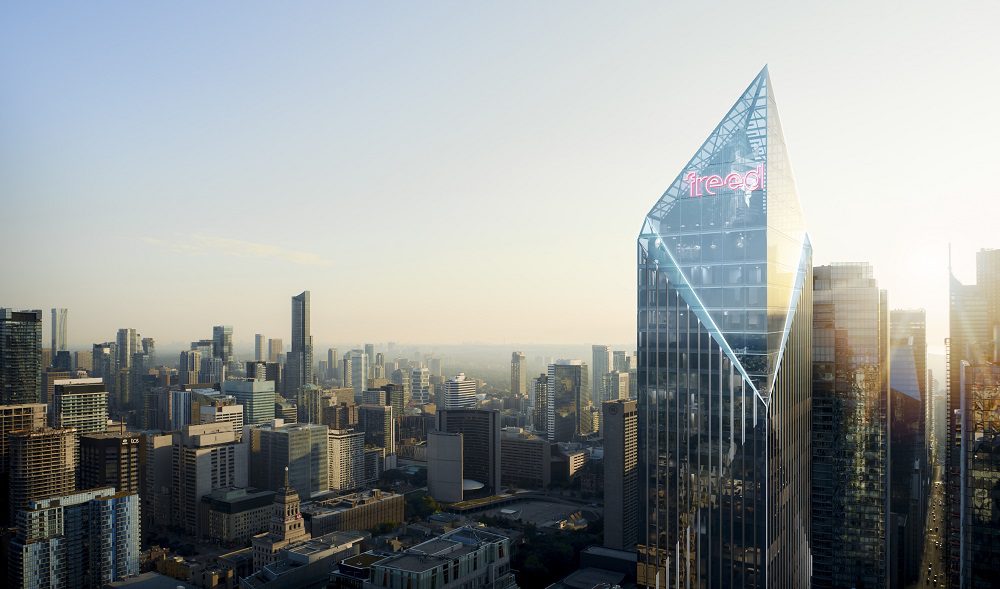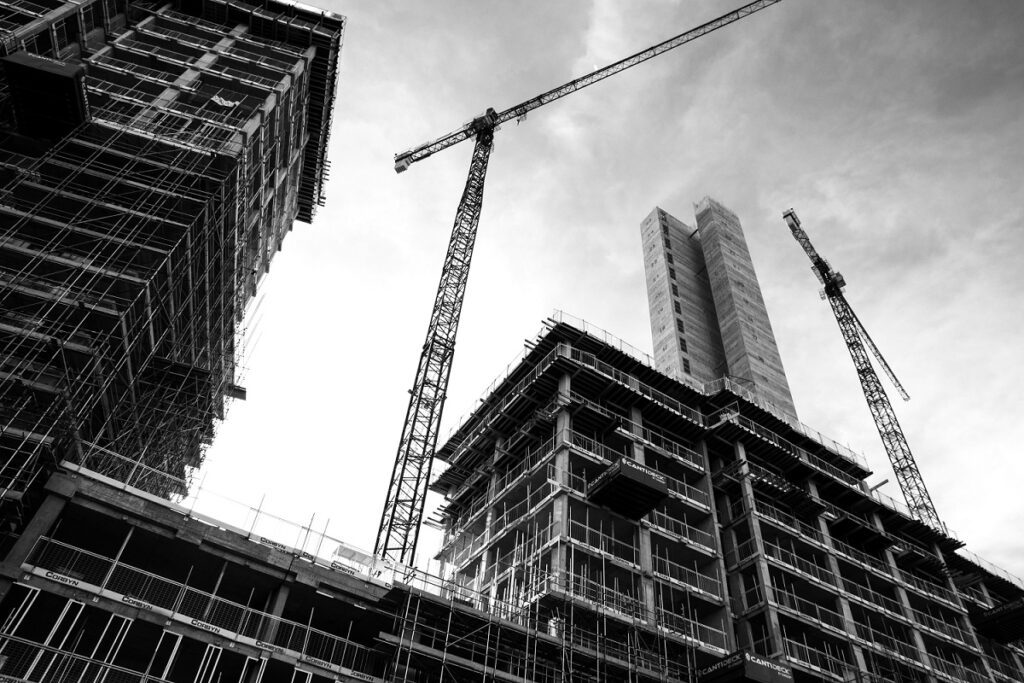LAWSUIT!
How does that word make you feel? Did you get a shiver down your spine? Are you scared?
That’s the reaction most people have. If media, Hollywood, and societal perception has taught us anything it’s that lawyers are big and scary, and that you can “sue” anybody, for anything, at any time.
In the Toronto condominium world, we are always on the lookout potential litigation, but is there such a thing as “litigation that doesn’t matter?” Or call it, “insignificant litigation?”
Let me explain, and then let’s discuss…

If all this sounds familiar to you, it’s because it is.
Back in 2011, I wrote a blog called, “Don’t Be Afraid Of The Word Lawyer,” in which I explained that today’s society is so quick to throw around the phrase “I’ll sue you,” without any thought about the logic, or cost.
I’m a cynic by nature, and I’m also the son of a lawyer. So combine those two, and I guess I just don’t see “I’ll sue you” as much more than three words.
I think we’d all agree that about 99.99999% of “I’ll sue you” turns into nothing, with that modest decimal representing a case that also, might turn into nothing, in the end.
When it comes to downtown Toronto condos, the buyer, buyer’s agent, and lawyer, have to be exceptionally diligent about the condominium corporation that the buyer is purchasing into.
Most, if not all offers to purchase are conditional on a review of the condominium’s “Status Certificate,” where you look for potential red flags. You want to make sure the seller has paid his or her taxes and maintenance fees, that there are no liens on the condo, that the building has a sufficient reserve fund, and that there are no major expenditures for the building that could result in a special assessment, or a large increase in maintenance fees.
Those expenditures, of course, could be related to any number of things. The most common large expenditure that buyers and condo owners fear is a substantial renovation, or repair. Obviously older condos are in greater risk of a large repair being needed, perhaps for a failing system (heating, mechanical, etc.), or a significant renovation (remodelling an 1970’s lobby, etc).
But an even larger potential expenditure exists in the form of, you guessed it, a lawsuit.
When you see the word “lawsuit” in the Status Certificate summary, there’s that “uh-oh” moment that we all go through, no matter how many condos we’ve bought or sold, or how many Status Certificates we’ve read, in the case of a lawyer.
But the point I want to make today is that not all lawsuits should scare you. Not all lawsuits are even worth spending ten minutes dwelling on.
Simply put, you need to determine the following:
Is the condominium being sued, or are they suing somebody else?
If you’re a Nervous Nellie, you might not differentiate between the two, but trust me when I say there’s a massive difference.
Lawyers will always give the example of the “slip and fall” lawsuit, even though I’m not sure they happen all that often. But if somebody was walking into the condominium in the winter, and they slipped on ice, broke their hip, and suffered physical and mental harm, they could sue the condominium corporation for $10 Million. That amount of money does NOT exist in any reserve fund, nor would, say, a modest $1M for a settlement, plus $500K in legal fees. The condo corporation would have to issue a massive special assessment to cover the expenditures, and this is an example of something that you would red flag as a buyer.
You might also see a current or former unit-owner suing the condominium corporation, or perhaps a disgruntled employee (employees technically work for companies employed by the condo corp, ie. property management, security, cleaning, etc).
Further to that point, one of those companies might sue the condominium corporation, say, the security firm for being wrongfully dismissed (in their opinion).
Whether any of these lawsuits actually see the light of a courtroom, and actually go to judgment, is only part of the equation. Even if a suit was dropped after 5-6 years, imagine the amount of legal fees that the condominium corporation will have racked up in that time.
The “reserve fund” is exactly that: a reserve, to complement the budget. It’s not a cure-all, nor is it lottery winnings, or anything close to covering a monumental, non-budget item. You simply can’t save for something that you don’t ever expect to happen, such as a $5 Million settlement, otherwise your maintenance fees would be quadruple what they are, and that money would sit around, for no good reason.
Now, as for the other side of the equation, when the condominium corporation is suing somebody else, many of these lawsuits aren’t a concern.
Case in point: I recently sold a unit in a newer building where the condominium corporation “may” be looking to start a lawsuit against the developer, because the developer advertised that he would use a certain interior design firm, but used somebody else.
This is, without a doubt, the stupidest lawsuit I’ve ever heard of in the Toronto condo industry.
I say “may” above because they haven’t launched the action yet, so they still have time to back out of something that is a complete and utter waste of time.
But consider that the developer can change whatever they want about the common elements (and many thing about your unit in pre construction), and I wonder why these condo owners think they have a case. I wonder why they think it matters anyways. Are they such brand-whores that they want “Smith and Smith” to have their name associated with the building, rather than “Jackson & Jackson?” Do they think that this will affect resale value?
This lawsuit will never go anywhere, and the board and the condo owners will probably forget the whole thing.
As for legal proceedings that have actually begun, most of them are quite stale.
If you read through the Status Certificate you might see that the condominium corporation is suing, say, the elevator company, in an action started in 2005. I’m not suggesting that further legal fees won’t be incurred, but I am suggesting that a stale 9-year-old lawsuit isn’t a reason not to buy into that particular condominium.
The most common lawsuit for condominium corporations, as you probably guessed, is against the condo developer, and I would estimate that probably 20% of all condos end up in some form of legal action with the developer.
There are too many reasons to even name, but usually construction and defects tops the list, as there’s often debate about who is responsible for a given cost: the condominium corporation, the developer, or TARION.
I may have made fun of the potential lawsuit against the developer for not using a particular interior design firm, but that’s not a tangible claim, nor is there any physical damage.
In the case of an elevator that needs a massive overhaul, balconies that are faulty and need to be replaced, pipes that provide only scalding hot water and no chance at lukewarm or cold – these are reasonable claims against the developer, and more often than not, the developer will work toward some sort of solution. They’re not going to cut a cheque on the spot, but they’ll often commit to repairs to avoid incurring legal costs (why not fix the pipes rather than pay a lawyer to fight something you might be forced to do regardless?), and often the legal action will crash before it ever really gets off the ground.
Every buyer has a different risk tolerance, and evaluating a legal action involving a condominium corporation is no different than evaluating the potential resale value of a unit, the potential change in demographic of the neighbourhood, or the style of the units and how they’ll hold up as trends change over time.
I’m not saying that legal actions aren’t a serious matter, but I am saying that they’re extremely common in downtown Toronto condos, and you simply can’t always be afraid of the word “lawsuit”….































Alan
at 10:46 am
Some Toronto owners seem to think they live in the US, where punitive damages can run high.
I am keenly aware of a moronic $10 million dollar suit claiming myriad damages primarily because of a small water leak over a decade ago. All efforts at the time of incident to repair said damage were thwarted (paranoid owner) to the point that mold set in and the owner came home to find her unit stripped of all toxins…namely floors and walls.
And it went downhill from there. On the one hand it’s a fascinating character study; on the other hand it scares off touchy buyers who actually think she might exceed the corporation’s immense insurance coverage.
Marina del Rey Resident
at 10:14 am
Really Allan? I think you got the facts wrong neighbour: http://marinadelreylawsuits.blogspot.ca/
Jill
at 11:11 am
The developer Jade, installed my patio rails with glass inbetween in a very sloppy way with uneven installation on the rails and glass. It really looks awful. I have take photos and send to the developer. What can I do I am on the main floor.
Thomas Lee
at 4:50 pm
http://www.cbc.ca/doczone/episodes/the-condo-game
Hi David,
I’m an agent in Vancouver where the pre-sales disclosure statements are written much differently then Toronto’s. I was about to buy a condo for my son along the Lakeshore around Humber Bay Shore Park where it is incredibly beautiful but after reading the disclosure statement with a 3 year outside occupancy date, having to get a mortgage through the vendors bank and seeing this Doczone episode, where you are featured, I changed my mind from buying a condo to buying a house instead. Thanks for being informative and making trusting buyers aware. Maybe this will tip the balance of power from the developer to the home buyer and some equitable changes are made in their one sided purchase agreements and disclosure statements.
Thomas Lee, Coldwell Banker Westburn Realty
H Marshall
at 2:04 pm
I would be worried about buying in a condo where the legal bills for the previous two years were over $10,000 or so. I would want an answer why they were so high.
There is a townhouse condo corporation in Peel where the board has spent close to $500,000 in legal fees and settlements in the last five years. Each owner was hit with a $12,000 special assessment.
Thomas
at 2:30 pm
Great post! Have nice day ! 🙂 wgsfr
Don trinh
at 6:00 am
Hi, I some concerns being a new landlord inside a condominium community.
I recently just bought a condo , and have decided to rent it out. The condo certificate states that there should be only one single family dwelling and does not allow leases. Not knowing this, I have rented out 3 rooms ( not under lease ). I recently got a notice served asking to remove my tenants. I approached another condo community and they told me only the city has the right to remove any tenants.
Given the situation what can I do to keep my tenants and what happens if I disobey the condo rule?
Sincerely, Don
Sent from my iPad
Anthony Costa
at 2:43 pm
Would you please consider looking over my status certificate??
ann krawchuk
at 5:24 pm
once a settlement is reached how is it dispursed, the board wants to deposit the excess into our reserve fund without voting on it. its over $400,000 above the initial share each unit paid.
Tim
at 11:54 am
Any condo property spending money in legal fees over a few thousand has a problem. Boards can fill up with unqualified people who then do anything to remain in control. Eventually they get sued. Personally I think courts should be harsher with board members who abuse powers. Its the only way to stop tyrants vs volunteers that actually want to help. I served on a board for 2 years that was the most corrupt and foolish group I’ve had the displeasure of knowing. They refused to read the Condo act and thought their opinion was all they needed. I became the odd man out. Eventually they got sued at great expense to all on property. Unfortunately it became impossible to sell a unit on the property as not only were special assessment issued but values sunk to the worst in the entire area per SF. Management didnt care either. They went along for the monthly check and broke several Condo Act laws themselves. I will never buy another condo as boards are going for older people with skills to young opinionated fools who think their feelings are all that matter. Trades take advantage of this and insurance as everyone can see also sees big opportunity to profit amongst this chaos.
Natalie
at 7:03 pm
Hi, Mr. Fleming
My name is Natalie
First of all, I appreciate that you leave me a choice of posting comment.
It does give me an idea of understanding about the problem between the Condo Corporation and owner. I am not the only one.
My chimney is broken down. The property manager accuses me that I cause the damage. Therefore, I have to cover the cost. Eventhough, I had a record of WETT inspector to state that the chimney is damaged about two feet above the damper.
I am filing the small claim court. My big question is who should I put down as a defendant. I am looking for legal advice from Pro Bono, where it is a free one.
I bought the condo, due to my emergency exit. I had an experience with living condo in the past. They are all the same.
If you do have any advice, I
Thanks so much and take care
Natalie